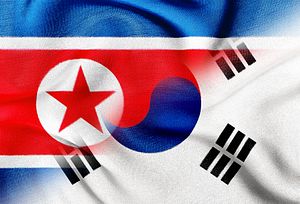The long-delayed Unification Preparatory Committee has finally started work this week. Inaugurated in February, the actual launching of the committee had been postponed by domestic events including the sinking of the ferry Sewol and the controversy over the cabinet nominations. The committee was formed as a means for the Blue House to follow up on President Park’s statement during her New Year’s speech that unification would be “a jackpot” for Korea. More substantively, the committee will examine policy measures that would fulfill the administration’s North Korea policy agendas for “humanity, co-prosperity, and integration,” which President Park highlighted as the foundations for Korean unification during her state visit to Germany in March of this year.
Drawing parallels to inter-German cooperation and contact prior to unification in 1991, President Park proposed that Seoul and Pyongyang cooperate on humanitarian issues, infrastructure development, and restoring a sense of common nationhood that will form the basis for Korean unification. Although this so-called Dresden Doctrine has some salience, the approach as a whole is overly optimistic and blurs the key differences between the Korean and German cases.
One aspect the doctrine’s weaknesses was revealed when Pyongyang rejected President Park’s proposals on the grounds that they promote unification by absorption. This should have been an expected given President Park’s strong references to the example of German unification, which was ultimately a case of the larger and more prosperous West German state absorbing its smaller rival. President Park’s call for Pyongyang to give up its nuclear weapons in the speech no doubt further heightened North Korea’s suspicions about Seoul’s intentions.
This underscores how President Park ignored the fundamental difference between East Germany and North Korea: the former was a satellite state of the Soviet Union and the latter is a state intent on defending its sovereignty. As a result, West Germany’s absorption of East Germany is an inappropriate model for Seoul to follow.
More importantly, successive West German governments had reached out to the Soviet Union through its Ostpolitik policy and had established a working relationship with the country that controlled East Germany both politically and militarily. It was the decades of positive economic linkages between Bonn and Moscow that created the conditions for Gorbachev to ink the Treaty on the Final Settlement With Respect to Germany (also known as the Two Plus Four Agreement) on September 12, 1990. Chancellor Helmut Kohl had delivered his ten-points for deepening cooperation between East and West Germany at Bundestag only a year before, on November 28, 1989, when external conditions had irreversibly made reunification a distinct reality.
South Korea currently enjoys none of the favorable conditions that facilitated German unification. While Pyongyang relies heavily on trade and aid from China, Beijing does not exercise the same kind of influence over North Korea as Moscow did over East Germany. Furthermore, even if Beijing had that degree of control, so far it has only consented to the principle of a nuclear-free Korean Peninsula, not the abolition of the North Korean state. Therefore, Seoul must see eye to eye with Pyongyang for there to be the right conditions for closer integration. However, since North Korea has already roundly rejected the Dresden Doctrine, there is little that the new committee can do.

































